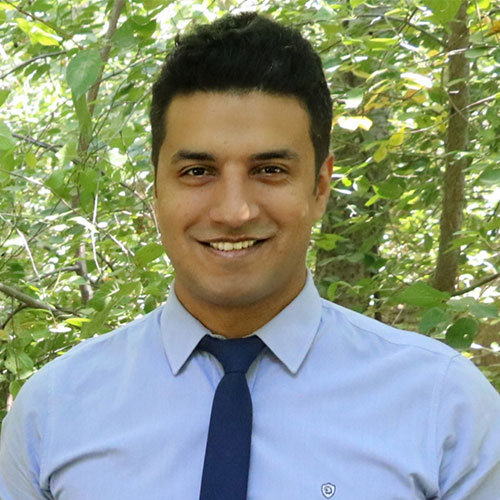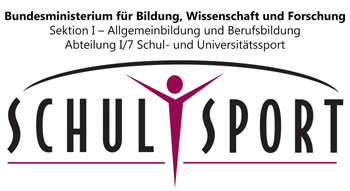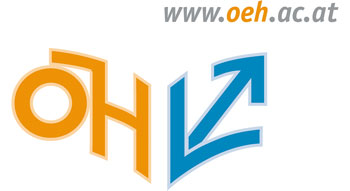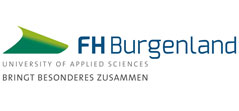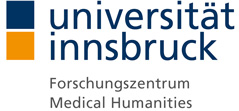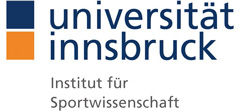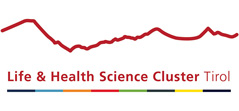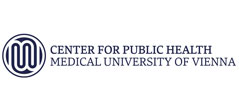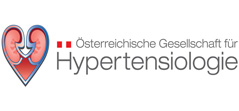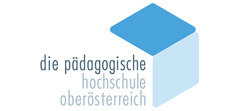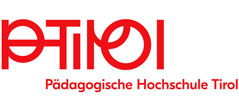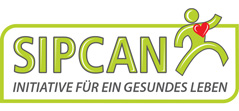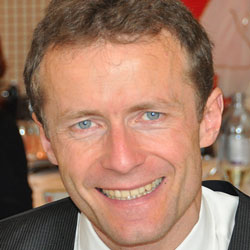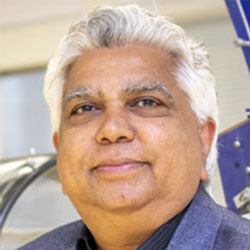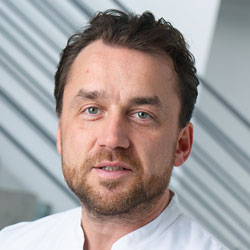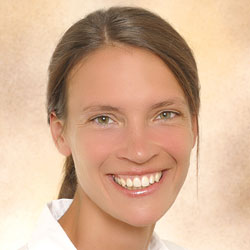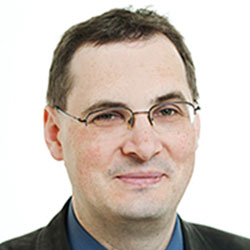Sustainably healthy – From Science 2 Highschool & University
Survey of the prevalence of sports & physical exercise linked to different kinds of diets
among Austrian colleges and universities
Join us in the Austrian-wide college & university study!
From Science 2 Highschool & University is the first study in which a scale of movement patterns are linked to various kinds of diets (traditional, current trends) in the tertiary educational context.
In order to make informed statements, a large number of subjects are needed.
Through an online survey as part of this Austria-wide college & university study, we would like to examine all students and academic staff on the topics of physical exercise & sports, nutrition, and health.
Therefore, we cordially invite all students and academic staff of Austrian colleges and universities to take part!
Be part of it!
In Austria, there are approximately 102 colleges and universities with 376,050 students and 69,310 academic staff.
In order to successfully carry out this college & university study and obtain robust results, it is important that all students and academic staff participate.
Be there, join us, and many thanks!
Aim
From Science 2 Highschool & University is based at the University College of Teacher Education Tyrol (PHT – Pädagogischen Hochschule Tirol) in the area of Sport Didactics/Sport Pedagogy within the Department of Subject Didactics and Educational Research and Development (expert team: „Physical Activity, Sports & Health“) and will be carried out as a didactical research project in cooperation with the Department of Sport Science (ISW – Institut für Sportwissenschaften) Leopold-Franzens-University of Innsbruck (LFUI), the Department of Physical Activity, Sports and Exercise at the University College of Teacher Education Upper Austria (PHOÖ – Pädagogischen Hochschule Oberösterreich) and the Department of Nutrition Science at the University of Vienna.
This Austria-wide college and university study is funded by the Tiroler Wissenschaftsförderung (TWF), and supported by the Federal Ministry of Education, Science and Research (BMBWF – Bundesministerium für Bildung, Wissenschaft und Forschung, Abteilung I/7 – Schul- und Universitätssport), as well as by the Austrian Students’ Union (ÖH – Österreichische Hochschüler_innenschaft).
This interdisciplinary project (Sports Science, Nutrition Science) is the first study to survey the prevalence of different diets linked to physical exercise & sports participation in the tertiary educational context.
(1) WHO (2020a) Noncommunicable diseases. https://www.who.int/health-topics/noncommunicable-diseases#tab=tab_1 (23. 11. 2020)
(2) Österreichsicher Ernährungsbericht 2017: https://broschuerenservice.sozialministerium.at/Home/Download?publicationId=528 (1. 10. 2020)
(3) Öffentliches Gesundheitsportal Österreichs: https://www.gesundheit.gv.at/aktuelles/archiv-2017/ernaehrungsbericht-2017 (1. 10. 2020)
(4) Statistik Austria, Body Mass Index (BMI), Gesundheitsbefragung 2014 (1. 10. 2020): https://www.statistik.at/web_de/statistiken/menschen_und_gesellschaft/gesundheit/gesundheitsdeterminanten/bmi_body_mass_index/105608.html; https://www.statistik.at/web_de/statistiken/menschen_und_gesellschaft/gesundheit/gesundheitsdeterminanten/bmi_body_mass_index/025420.html; https://www.statistik.at/web_de/statistiken/menschen_und_gesellschaft/gesundheit/gesundheitsdeterminanten/bmi_body_mass_index/index.html
(5) Statistik Austria, Körperliche Aktivität in der Freizeit, Körperliche Aktivität 2014 (1. 10. 2020): http://www.statistik.at/web_de/statistiken/menschen_und_gesellschaft/gesundheit/gesundheitsdeterminanten/koerperliche_aktivitaet/index.html; http://www.statistik.at/web_de/statistiken/menschen_und_gesellschaft/gesundheit/gesundheitsdeterminanten/koerperliche_aktivitaet/index.html
(6) STATISTA, Statistiken zu Vegetarismus und Veganismus in Österreich: https://de.statista.com/themen/3804/vegetarismus-und-veganismus-in-oesterreich/ (1. 10. 2020)
(7) Vegane Gesellschaft Österreich: https://www.vegan.at/inhalt/9-leben-vegetarisch-oder-vegan (1. 10. 2020)
(8) Childs CE, Calder PC, Miles EA (2019) Diet and Immune Function. Nutrients, 16;11(8):1933. doi: 10.3390/nu11081933.
(9) de Faria Coelho-Ravagnani C, Campos Corgosinho F, La Flor Ziegler Sanches F, Marques Maia Prado C, Laviano A, Mota JF (2020) Dietary recommendations during the COVID-19 pandemic. Nutr Rev, 2020 Jul 12;nuaa067. doi: 10.1093/nutrit/nuaa067.
(10) Craddock JC, Neale EP, Peoples GE, Probst YC (2019) Vegetarian-Based dietary patterns and their relation with inflammatory and immune biomarkers: A systematic review and meta-analysis. Adv Nutr 10: 433-451.
(11) American College of Sports Medicine (ACSM) (2020) Staying Physically Active During the COVID-19 Pandemic. Tips: staying active at home. Available from: https://www.acsm.org/read-research/newsroom/news-releases/news-detail/2020/03/16/staying-physically-active-during-covid-19-pandemic (3. 12. 2020)
(12) Chen P, Mao L, Nassis GP, Harmer P, Ainsworth BE, Li F (2020) Coronavirus disease (COVID-19): The need to maintain regular physical activity while taking precautions. J Sport Health Sci, 9(2):103-104. doi: 10.1016/j.jshs.2020.02.001.
(13) Jakobsson J, Mal, C, Furberg M, Ekelund U, Svensson M (2020) Physical activity during the coronavirus (COVID-19) pandemic: prevention of a decline in metabolic and immunological functions. Frontiers in Sports and Active Living, April 2020, Vol 2, 57. https://doi.org/10.3389/fspor.2020.00057
(14) Mitchell R, Popham F. (2008) Effect of exposure to natural environment on health inequalities: an observational population study. The Lancet; 372(9650): 1655-60.
(15) WHO (2020b) Stay physically active during self-quarantine. Available from: https://www.euro.who.int/en/health-topics/health-emergencies/coronavirus-covid-19/publications-and-technical-guidance/noncommunicable-diseases/stay-physically-active-during-self-quarantine (3.12. 2020)
(16) WHO (2020c) Food and nutrition tips during self-quarantine. Available from: http://euro.who.int/en/health-topics/health-emergencies/coronavirus-covid-19/novel-coronavirus-2019-ncov-technical-guidance-OLD/food-and-nutrition-tips-during-self-quarantine?fbclid=IwAR0IxmHZqgX-uwgq0cNTsDM3BdHUogV8EcFbqiY3olALGzBP_hbzW6AwYnA (3. 12. 2020)
(17) Allianz Österreich (2020) https://www.ots.at/presseaussendung/OTS_20201216_OTS0048/oesterreichs-lebensstil-in-der-corona-krise-jeder-zweite-lebt-zurzeit-bewusst-gesund (29. 1. 2021)
Timescale
Publications
Currently in Austria only!
Dear students!
Dear lecturers/academic staff!
With this online questionnaire, we would like to examine the topics of exercise & sports, nutrition and health as part of the Austria-wide university and college study ‘Sustainably healthy . This survey is carried out anonymously, meaning that nobody will know what information you have provided and therefore, no conclusions can be made about you.
Completing the questionnaire will take about 20 minutes.
Please read through each question carefully and answer by clicking on the box that best expresses your opinion (sometimes multiple answers are possible, sometimes you should enter a number or answer, sometimes a personal opinion or assessment should be given, sometimes a ranking or weight should be given).
There are no “correct” or “incorrect” answers. Please answer all questions truthfully.
Gender declaration. For the sake of readability, the generic masculine language form is used in this study.
It should be noted that the exclusive use of the masculine form should be understood regardless of gender.
Thank you for your participation!
Support
It is well documented that health risks are strongly influenced by various lifestyle factors. Exercise & sport and diet, along with sleep, stress, relationships and substance abuse are critical to health and well-being.
Current unhealthy exercise and dietary habits have led to an increased prevalence of overweight and obesity with dramatic health consequences.
Following the original school study "From Science 2 School", this promising follow-up project on the health behaviour of Austrian students and their lecturers, also during COVID-19 interventions, can make a valuable contribution to the very limited data available on the behaviour of (young) adults in the tertiary education field.
It makes perfect sense to make decisions on further health promotion measures based on valid data. We are all confident that this will be achieved through the university and college study!
Especially during the academic years, the exercise behaviour of young people changes drastically. For many students, the start of their studies also means moving to a new location, leaving their parents' home, and thus breaking away from a familiar, secure structure. Due to a full timetable, unhealthy nutrition, little sports and exercise, and irregular sleep patterns, young students, in particular, run the risk of falling into an unhealthy lifestyle during their education. However, students are not informed about these risks.
A survey on the nutritional and exercise behaviour of Austrian students, therefore, seems essential and necessary for the representation of the current situation of students in Austria.
(alphabetical order)
The number of overweight and obese children, adolescents and adults, which has been growing for years, is a cause for concern in many parts of the world - including Austria. One of the six global goals of the World Health Organization to be achieved by 2025 is that these numbers must not rise any further. This is precisely why projects that can help improve the eating and exercise behavior of young people are very important.
The young adults taking part in this follow-up study can help to create a good empirical data basis in order to develop effective measures.
Healthy and motivated students and staff are the most important resource of a university or college. The aim of the University of Applied Sciences Burgenland is to initiate and support healthy and health-promoting working and living conditions, as well as to promote and strengthen the personal competencies and potentials of our students, lecturers and staff. As a cross-sectional task, behavioural health promotion is directed at all those involved at the university.
Exercise and nutrition are essential components of a health-promoting lifestyle. In particular, programmes that promote a balanced diet and more physical activity among adults and that address not only behaviour but also circumstances have proven to be extraordinarily effective. It is particularly interesting for the University of Applied Sciences Burgenland to use the study´s findings in its in-house occupational health management.
Our research focus is on risk factors of cardiovascular diseases and associated vascular changes of health and disease in all age groups. Therefore, just one of our concerns is to promote physical activity in children, adolescents and young adults at an early stage.
It is essential to draw attention to the problems of inactivity and obesity and the resulting consequential diseases and to implement possible preventive strategies as early as possible. The survey of the current status of various forms of nutrition as well as exercise and sport within Austria, which is the aim of this project, will form a fundamental basis for further necessary steps.
As Chair of Physiology, we support this project as it is in direct line with our ERASMUS+ KA project in which we are surveying the effect of physical activity in school children in four different countries: Norway, Austria, Slovenia and Belgium.
While it is known that daily physical activity has an impact on the prevention of overweight/obesity, the importance of a healthy or unhealthy lifestyle, including dietary habits, which will be surveyed in Dr. Wirnitzer's project, should not be underestimated.
Lifestyle measures such as a balanced diet, regular exercise, weight awareness, not smoking, restrained alcohol and meat consumption, and stress management are extremely valuable aids to healthy ageing.
Exercise as a "medicine" has a preventive effect against countless diseases such as high blood pressure, diabetes and cancer. It relieves pain, strengthens the immune system, and it supports and protects the psyche. This "medicine" is inexpensive, easy to dose and, when used correctly, has no side effects.
Especially in these times of discussion about climate change, as a preventive and environmental medical specialist, I am amazed about our lifestyle; actually, it is simple: what is good for the planet is also good for us ... buying and cooking regionally/seasonally, and eating a vegetable-based diet – together with an active lifestyle is good for our health and is also good for the health of the planet.
... and: the earlier we start raising awareness, but also with implementation, the better!
„Sustainable healthy“ will be an important building block for this. I look forward to the valuable insights.
High blood pressure, obesity and diabetes are diseases that affect every third to fourth person in our society and unfortunately, their prevalence is increasing in young adulthood and in some cases, in children.
Lifestyle factors make a significant contribution to the prevention of these affluent diseases. With a healthy diet and regular exercise from childhood onwards, high blood pressure, obesity and diabetes can mostly be prevented as well as their consequences on the heart, brain and blood vessels.
The university study provides an important overview of the habits and health status of young adults and thus promotes raising awareness for a healthy lifestyle.
It is unfortunate that unhealthy eating and exercise habits do not stop at pregnant women but pass on to the next generation as well. Ready-to-eat meals with a lot of fat, sugar and salt, and a high proportion of saturated fatty acids due to excessive consumption of foods of animal origin, contribute to the fact that diseases of affluence, such as high blood pressure or diabetes, also occur more frequently during pregnancy. A diet rich in fiber, for example, significantly reduces the risk of gestational diabetes. Sports/exercise during pregnancy, such as yoga for pregnant women, is becoming more popular but is unfortunately still a niche topic.
After birth, the nutrition of their own offspring is often left to baby formula and jar manufacturers rather than creating their baby’s nutrition themselves.
Many parents lack the knowledge about the uniqueness of breast milk or later on about the quality of freshly prepared wholesome meals with the highest possible proportion of plant-based components. In this area, 'From Science 2 Highschool & University' can make a significant contribution to sensitize future multipliers, linking everyday topics such as nutrition, sports and exercise in an exciting way and to bring them closer to future generations.
The influence of lifestyle on our health is, in general, greatly underestimated compared to our genetic makeup and the contribution of the health care system: studies assume that over a lifetime, around a quarter of all diseases can be attributed to our genetics and just under 12% to the quality of the health care system. In contrast, almost 40% are determined by our lifestyle. So it is largely in our hands whether we suffer from chronic diseases such as diabetes, high blood pressure, arthritis or even dementia. Instead of swallowing vitamin and nutritional supplements, we should concentrate on what our body was made for: exercise and a balanced diet.
This study teaches these topics at an early stage during an important phase of life and will help to multiply and sustainably anchor this knowledge.
In modern health research, it is more important than ever to shift the perspective away from a pure transfer of knowledge and towards behaviour lived out in daily practice. This applies to working with children as well as with adults. Social development reflects an ongoing trend towards a conscious and sustainable lifestyle, for oneself but also for the environment. The current pandemic has further powered the health trend, in which nutrition and our physical activity behaviours are the central pillars.
This study will make a valuable contribution to this and provide new insights with up-to-date data.
For long-term health, a shift towards an essentially plant-based diet appears to be of big importance, both for the health of the individual and for global health. The effects of a plant-based diet on the development of healthy and chronically ill children is, therefore, an important goal of one of our research foci. We are interested in sustainable behavioural change in children and adolescents in the field of nutrition and the associated positive effects on child health.
There is an interface here between our research on children and adolescents and this university study, which will provide important data on lifestyle from nutrition, exercise and etc. of the large and highly promising population group of students, and their lecturers, due to their roles as future multipliers. The results will contribute to increasing awareness of the preventive potential of lifestyle factors, and thus allow their promotion in a targeted manner.
In 2019, diseases of the cardiovascular system, including cerebrovascular diseases, continue to lead the statistics for causes of death in the population of Austria.
Atherosclerosis begins in adolescence! The wrong habits can lead to a heart attack decades later. But, this fate can be avoided.
We can attribute great potential to the prevention of so-called affluent diseases primarily to nutrition, but also to exercise habits and physical activity.
The prerequisite for the best prevention strategy is the exact knowledge of the current state of dietary and physical activity habits in different age groups and population structures.
What is particularly exciting about the present study is the collection of habits and knowledge regarding healthy behavior in different age groups of similar educational levels.
Here the scientists are working a priceless service around Dr. Wirnitzer with the studies "Sustainably Healthy - From Science to School" and now also as a logical sequel, "Sustainably Healthy - From Science to High School & University.
Cardiovascular diseases are the most common chronic diseases in the western world today. People's dietary and exercise habits have a major influence on the risk of developing chronic diseases. These diseases are not just individual fates, they also place a heavy burden on the public health budget.
Preventive measures are the first priority in fighting against these diseases and should be implemented across the board.
For this reason, it is necessary to educate society based on facts and to influence the behavior of each individual towards a responsible lifestyle. Adolescents and young adults have the necessary maturity and common sense to make a rational decision about living a healthy lifestyle. For this decision to be made by an individual, good education and training are necessary because only an informed person can make a rational decision. The study planned by Dr. Katharina Wirnitzer collects data on the diet and exercise habits of the target group “young adults”. Based on this data, it will be possible to assess the necessity for good offers that inform people about the influence of nutrition and exercise on lifelong health and provide education in this field.
Nutrition and exercise are the most important lifestyle factors for the prevention of non-communicable, chronic diseases. Cardiovascular diseases, type 2 diabetes or cancers are not only the main causes of death in the so-called industrialised countries, but they are also increasing massively worldwide. This is strongly related to diet and increasing physical inactivity. Recent data shows that on average, 80% of the world’s children and adolescents move less than 1h/day, and that only a small percentage of adults reach the WHO's physical activity recommendation of 150 min/week. The same applies to nutritional habits, as shown by the Austrian nutrition reports of the last decades, but also by international nutrition reports. Not enough plant-based foods are consumed, such as fruit, vegetables or whole grain products, but too much meat and meat products. At the same time, overweight and obesity have increased dramatically in recent decades.
The university study will provide important data on the diet and lifestyle of a relatively large group of the population - students as well as academic staff - who have not yet been surveyed to this depth. The results will contribute to an even greater awareness of lifestyle factors as well as their preventive potential and hopefully, promote it in the targeted population.
Team
Study Coordinator
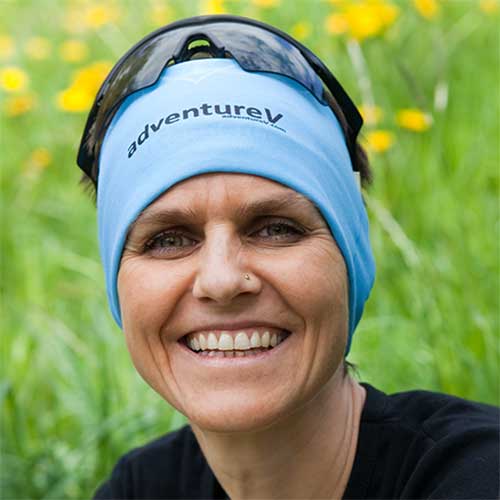
Research Team (alphabetical order)
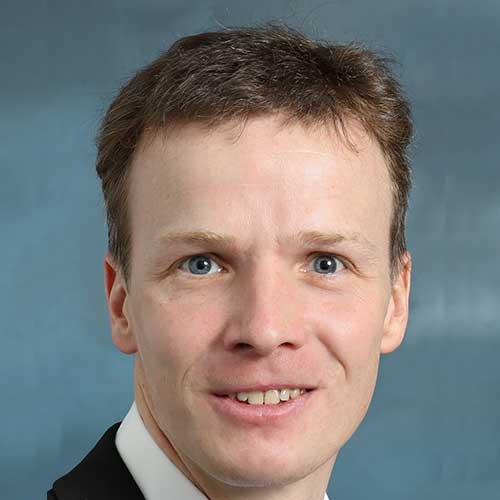

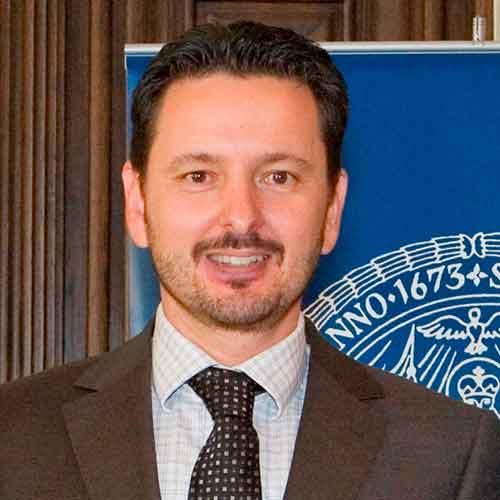
IT-Koordinator

Former research associates
